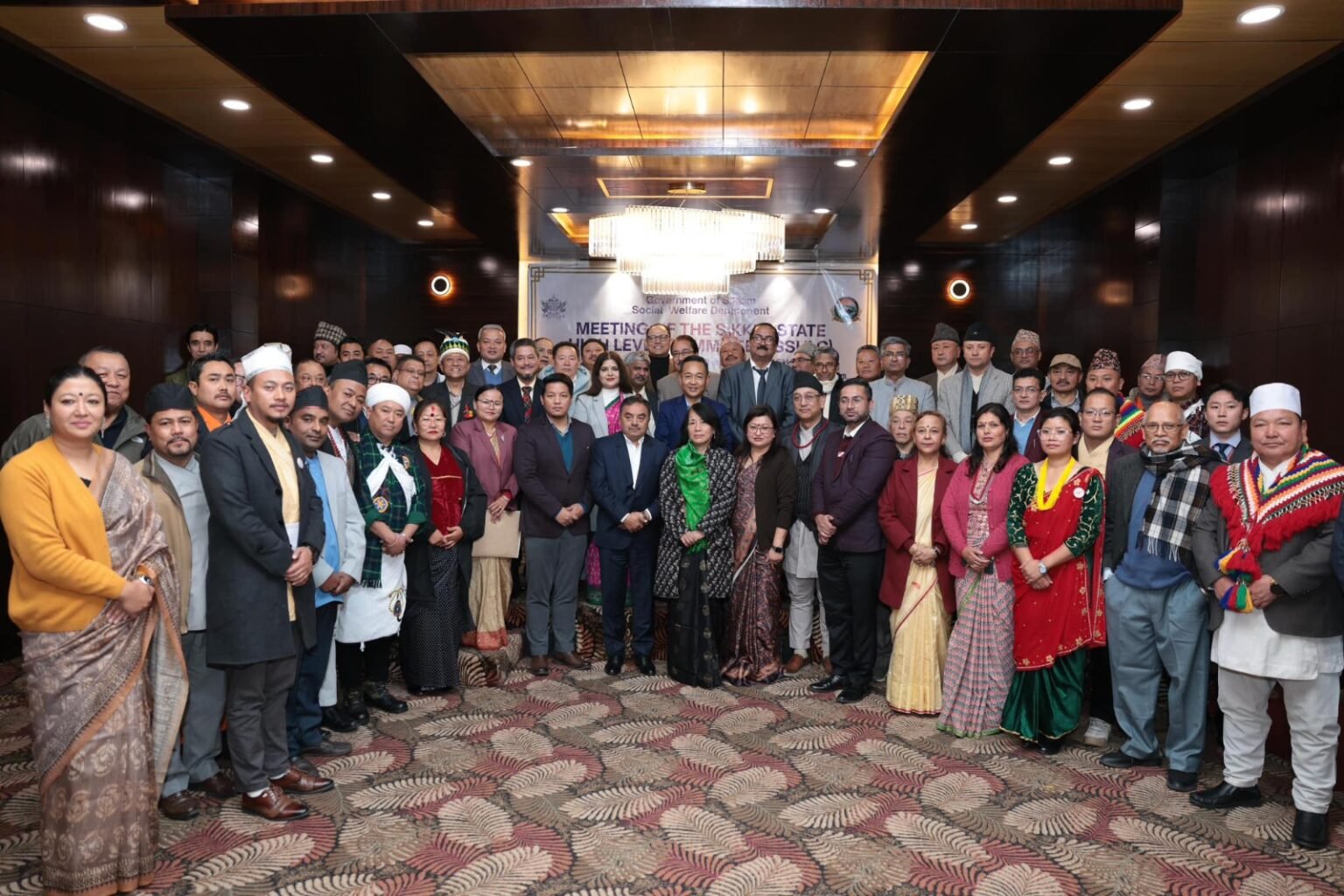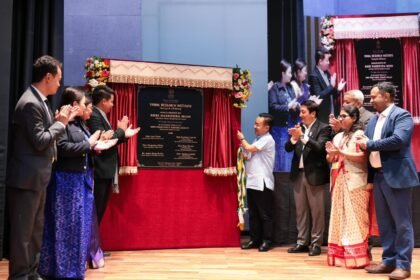GANGTOK: Chief Minister Prem Singh Tamang-Golay attended the inaugural meeting of the Sikkim State High-Level Committee (SSHLC), organised by the Social Welfare Department (SWD), here at Samman Bhawan on December 15.
The SSHLC has been constituted to facilitate the inclusion of 12 left-out Sikkimese communities in the Scheduled Tribes list under the Indian Constitution. With a critical mandate, the High-Level Committee will develop a comprehensive ethnographic report and submit actionable recommendations within a three-month timeframe.
Present in the meeting were the SSHLC committee members including, Mr B V Sharma, Chairman SSHLC; Prof Mahendra P Lama, Vice Chairman SSHLC; Dr Shiva Kumar Rai, Chairman of the Eleven +1 Indigenous Ethnic Communities of Sikkim (EIECOS Plus 1); Mr A B Ota, Anthropologist; Mr Bedu Singh Panth, MLA cum Advisor Directorate of Sikkim State Lotteries and Excise Department; Dr Nupur Tiwary, Chair Professor of Dr Ambedkar Chair in Social Justice, Indian Institute of Public Administration, New Delhi; Mr Rangan Dutta, Former Director General; Dr Sandhya Thapa, Head of Department of Sociology Sikkim University; Mr Sarit K Chaudhuri, Professor of Anthropology and Dean, Faculty of Social Sciences; Mr Satyabrata Chakrabarti, PhD in Anthropology; Mr Virginius Xaxa, Visiting professor, Institute for Human Development, New Delhi and Ms Sarika Pradhan, Secretary SWD.
The meeting also had the presence of Ms Raj Kumari Thapa, Deputy Speaker SLA, Mr Indra Hang Subba, MP Lok Sabha, council of ministers, MLAs, representatives of the 12 left-out communities and other dignitaries.
The Chief Minister, welcoming the SSHLC committee members, highlighted pivotal events preceding Sikkim’s merger with India, providing valuable historical context. In his address, the Chief Minister outlined the state government’s initiatives aimed at securing the inclusion of 12 Sikkimese communities in the Scheduled Tribes list, a move crucial for their social and economic empowerment. Stating that the main objective of the first meeting of SSHLC is to work out the modalities of inclusion in compliance with the directives of Registrar General of India and Ministry of Tribal Affairs, the Chief Minister assured the government’s commitment to addressing this demand and stressed the need for collaborative efforts from all stakeholders to achieve this objective.
Further assuring full support of the state government to ensure this mission’s success, the Chief Minister requested the representatives of the 12 left-out communities to provide full support and cooperation to SSHLC.
In his welcome address, Mr Suman Gurung, Special Secretary SWD, welcomed all the dignitaries to the meeting and outlined the purpose of the meeting. He emphasised the objective of addressing the long-pending demand for the inclusion of 12 excluded Sikkimese communities in the Scheduled Tribes list.
Ms Sarika Pradhan, Secretary SWD who is also the Member Secretary of SSHLC, presented the status report on the inclusion of 12 excluded Sikkimese communities in the Scheduled Tribes list and introduced the members of the SSHLC. She highlighted the government’s initiatives of including these communities and provided an overview of their historical background. Additionally, she emphasised the proactive steps taken by the state government.
Mr B V Sharma, Chairman of SSHLC, expressed his gratitude for being part of the committee. He stressed the need to bridge existing gaps and urged members to contribute their expertise to enhance the committee’s approach, hoping the report would yield significant and benchmark results.
Dr Shiva Kumar Rai, Chairman of EIECOS Plus 1, extended his gratitude to the Chief Minister for his pioneering initiative and for establishing the SSHLC. He elaborated on the state government’s initiatives, undertaken under the Chief Minister’s leadership, and expressed optimism that this objective of inclusion of the left of Sikkimese communities in the category of Scheduled Tribes would certainly be obtained.
Prof Mahendra P Lama, Vice Chairman of SSHLC, stressed the importance of developing a robust framework, emphasising the need for evidence-based approaches. He outlined five key criteria for focus and urged the presentation of a distinct argument, encouraging the search for historical documents and manuscripts to drive a meaningful outcome.
The Vote of Thanks was delivered by Ms Bandana Chettri, Additional Secretary SWD.
The Inaugural Session was followed by the convention of the SSHLC members and thereafter, Consultation Session with the representatives of the 12 left-out communities.
- IPR Report





